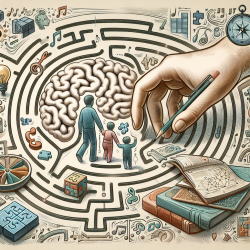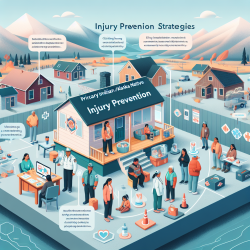Introduction
Transition-age youth, typically between 17 and 25 years old, face unique challenges as they navigate the complex journey from adolescence to adulthood. For those with serious mental health conditions, this transition can be even more daunting. The Cornerstone program, a theoretically guided intervention, has emerged as a beacon of hope, offering a structured approach to address the mental health and psychosocial needs of this vulnerable population.
The Cornerstone Program: A Holistic Approach
The Cornerstone program is designed to provide comprehensive support through a combination of case management, trauma-focused cognitive behavioral therapy, peer mentoring, community-based practice, and group sessions. This multifaceted approach aims to reduce stigma, build trust, and equip youth with the practical skills needed for a successful transition to independence.
Key Components of the Cornerstone Program
- Boundary-Spanning Case Managers (BSCMs): These professionals are trained to support youth through the transition to adulthood, providing consistent therapeutic contact and facilitating community integration experiences.
- Recovery Role Models (RRMs): Peers who have successfully managed their own mental health challenges serve as mentors, offering guidance and modeling hope for a full life with a mental health condition.
- Knowledge and Skills-Based Groups: Group sessions focus on critical areas such as independent living skills, stress management, and understanding mental health challenges, fostering a supportive community environment.
Implementation and Impact
The Cornerstone program utilizes a hybrid research design, combining qualitative methods with a randomized controlled trial to assess feasibility, acceptability, and preliminary impact. Initial findings suggest that the program not only improves mental health outcomes but also enhances service engagement and life skills among participants.
Practical Implications for Practitioners
For practitioners working with transition-age youth, the Cornerstone program offers a valuable framework to enhance service delivery. By integrating peer support and community-based practice, practitioners can foster a more engaging and effective therapeutic environment. Additionally, the program's emphasis on skill development and stigma reduction can empower youth to take charge of their mental health journey.
Encouraging Further Research
While the Cornerstone program shows promise, continued research is essential to refine and expand its application. Practitioners are encouraged to explore the program's methodologies and consider how they might be adapted to their unique settings. Collaboration with researchers and mental health experts can further enhance the program's effectiveness and reach.
Conclusion
The Cornerstone program represents a significant step forward in addressing the mental health needs of transition-age youth. By providing a structured, supportive framework, it offers hope and practical solutions for a brighter future. As we continue to learn and adapt, the potential to transform lives and communities grows ever stronger.
To read the original research paper, please follow this link: Cornerstone program for transition-age youth with serious mental illness: study protocol for a randomized controlled trial.










